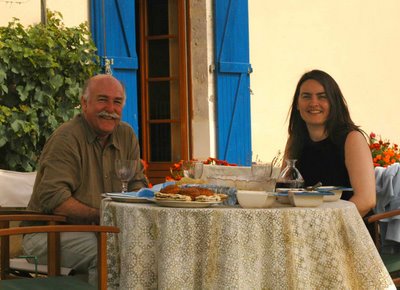Places I Visit
- Human Images
- My favorite neglected blog
- One Good Move
- 3 Quarks Daily
- Dooce
- Dervala
- ZeFrank: The Show
- Daily Oliver
- Finslippy
- Fussy
- Sweetney
- Neatorama
- Mightygirl
Previous Posts
- The Constitutional Crisis We Didn’t Have
- Things to leave behind
- On Booing Bernie
- Taco contributing a bit of autumn colour
- Pensive among the poppies
- Red and green
- Taco: One year old
- Taco amongst the bluebells, at 11 months
- Almost summer means almost swimming!
- Taco at 10 and a half months
Archives
- April 2000
- May 2000
- June 2000
- July 2000
- August 2000
- September 2000
- October 2000
- April 2001
- June 2001
- July 2001
- August 2001
- September 2001
- November 2001
- December 2001
- January 2002
- May 2002
- August 2002
- October 2002
- June 2003
- December 2003
- January 2004
- August 2004
- February 2005
- March 2005
- July 2005
- August 2005
- September 2005
- October 2005
- November 2005
- December 2005
- January 2006
- February 2006
- March 2006
- April 2006
- May 2006
- June 2006
- July 2006
- August 2006
- September 2006
- October 2006
- November 2006
- December 2006
- January 2007
- February 2007
- March 2007
- April 2007
- May 2007
- June 2007
- July 2007
- August 2007
- September 2007
- October 2007
- November 2007
- December 2007
- January 2008
- February 2008
- March 2008
- April 2008
- May 2008
- June 2008
- July 2008
- August 2008
- September 2008
- October 2008
- November 2008
- December 2008
- January 2009
- February 2009
- March 2009
- April 2009
- May 2009
- June 2009
- August 2009
- September 2009
- October 2009
- December 2009
- January 2010
- February 2010
- March 2010
- April 2010
- May 2010
- June 2010
- July 2010
- August 2010
- September 2010
- December 2010
- March 2011
- April 2011
- April 2012
- May 2012
- June 2012
- August 2012
- September 2012
- November 2012
- December 2012
- January 2013
- April 2013
- May 2014
- June 2014
- July 2014
- August 2014
- September 2014
- October 2014
- November 2014
- December 2014
- January 2015
- February 2015
- March 2015
- April 2015
- May 2015
- June 2015
- November 2015
- July 2016
- November 2016
- February 2017
Sunday, August 20, 2006
Friday, August 18, 2006
Team oh my freaking god!
| Fucking astounding. I read the following article, and watched the little video below, and just cried like a baby. Shlocky contemporary Christian pop tripe and all. It's almost incomprehensible. Big hat tip to Sharla. (The following is originally from a Sports Illustrated story by Rick Reilly.) I try to be a good father. Give my kids mulligans. Work nights to Pay for their text messaging. Take them to swimsuit shoots. But compared with Dick Hoyt, I suck. Eighty-five times he's pushed his disabled son, Rick, 26.2 miles in marathons. Eight times he's not only pushed him 26.2 miles in a wheelchair but also towed him 2.4 miles in a dinghy while swimming and pedaled him 112 miles in a seat on the handlebars -- all in the same day (doing the Ironman Triathlon). Dick's also pulled him cross-country skiing, taken him on his back mountain climbing and once hauled him across the U.S. on a bike. Makes taking your son bowling look a little lame, right? |
Thursday, August 17, 2006
We are all Santayana's offspring
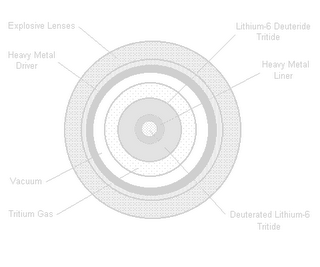 Tonight, I finally got 'round to reading "The Profits of Fear", by Charles Platt, over at BoingBoing. (A pdf is available here.) I highly recommend it. It profiles of Sam Cohen, the inventor of the neutron bomb, and goes on to discuss the policy-making behaviour that goes along with fear. The history is fascinating and the analysis chilling. Although I think the politics over-reach some, it's an extraordinary piece. Of course, my embrace of the article isn't surprising given its alignment with my views on the implications of fear, which I've recently expressed at some length here and here. From the article: George Orwell suggested in his novel 1984 that a totalitarian state would benefit most from a war which seems threatening yet is never sufficiently dangerous to defeat the nation and can be prolonged almost indefinitely. An ongoing conflict of this type provides an outlet for destructive energy and justifies material sacrifices while discouraging dissent. .. |
Tuesday, August 15, 2006
Monday, August 14, 2006
Some lovely lines out there
 I was struck by these simple bits of writerly goodness, today, walking around Paris chewing through my "to read" pile of articles. From The Times of London, Michael Holroyd wrote, in an article on George Bernard Shaw: "We appear to have more need these days of villains than of guides, philosophers and friends, more need of cautionary than exemplary tales."  Writing about one of my favorite writers, John Lahr called Tom Stoppard's new play "his latest intellectual piñata". Writing about one of my favorite writers, John Lahr called Tom Stoppard's new play "his latest intellectual piñata".And, while I can't abide Christopher Hitchens' world view -- a view re-confirmed (both his and mine) by reading his piece in The Weekly Standard about history's reconsideration of the firebombings of Dresden and other German cities -- the bastard sure can write. .. |
Constitution geek run amok, again
| There was a really interesting piece in Slate, about a month ago, that I just got 'round to reading today. Stealing First. It discusses why Dick Cheney should win in Valerie Plame and Joe Wilson's civil suit against him, and how he should go about it. It's all about the First Ammendment. I'd love to see Bad Dick lose it all in the suit, but the article makes a strong case that the Constitutional considerations should send the outcome the opposite direction. And I'd rather see the Constitution applied and upheld than see it railroaded just to punish a repugnant ass. Of course, ideally, both would be nice. .. |
My high school anthem
| You know, I haven't heard anyone use the term "New Romance" in years and years and years. But, back then, it was a universe. It's unclear whether Modern English never had another hit because they never wrote another good hook, or just because their front-man was much too unattractive to sustain stardom in a genre that was all about the look. Ah, they were simpler times. I love the naive stagecraft in the video. But what a gem. It's been long enough, now, that I don't remember whether I ever made out with anyone with this song playing in the background, or whether I just thought about it so damn much it only seems that way. .. |
Sunday, August 13, 2006
I have become a country song
| It’s amazing what loving someone like this does to you. How it shapes the person you were into something unfamiliar that’s also something better. How it changes the way the world comes in through your eyes. It’s Sunday night of a long weekend. The rain’s been falling for two straight days. The drops must have gotten bigger since dark. They’ve been silent all day, but I can hear them now. Flame-Haired Angel is away creating her dream, in England. It might as well be Australia for how far it seems at night. Rain like this she calls romantic. Sexy. If she were here, we would have let the movie I’ve been watching go silent and followed the roof rhythm of the rain. As it is, I find, in the half-light of the TV, a forgotten little pile of her toenail clippings. On the coffee table. The absent minded leavings of pre-trip care-taking. It might have been cause for a snide sideways remark. Otherwise. But, just now, it’s the only bit of her I’ve got close, and I laugh at myself as my heart leaps out, and I sweep the little pile into my cupped palm. There's lightning now. That's her favorite. .. |
The only thing we have to fear...
 Since last Thursday’s revelations that the British authorities had imploded a terrorist plot to blow up US-bound airplanes with liquid-based bombs, the news has offered unending follow-up commentary. Most of the analysis I’ve heard stresses three things:
The first is just how safe we are. The second is that murder is not the terrorists’ objective; murder is only the means. Their objective is to paralyze us with fear. I wrote just a few days ago about the secondary dangers of fear, and how our fear can be, and has been, exploited by others far closer to us, most days, than the terrorists will ever be. It became a cliché, after 9/11, to say that if we give in to fear, then the terrorists win. The cliché, in turn, spawned jokes, my favorite being “If you don’t sleep with me, the terrorists win.” But we have, by and large, as societies, buckled to fear. The result has been irrational reactions to events, striking out at whatever targets seemed convenient, no matter how tangential their connections to the cause of our fears. As I argued the other day, our fear has warped us into supporting courses of action we would otherwise consider immoral. 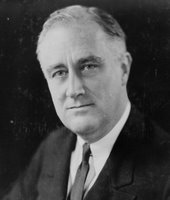 In response to terrorism, we seem to be thoroughly forgetting the admonishment of Franklin Roosevelt: “The only thing we have to fear is fear itself.” We probably just can't get beyond how trite it sounds. Perhaps when most people hear the phrase, they remember the advice having come, Churchill-like, during the dark days of World War II. So, it is cloaked in the reassuring glory of the Allies eventual victory. That makes it seem distant from our situation, today, in which our fear stems in part from our uncertainty about the eventual outcome. In response to terrorism, we seem to be thoroughly forgetting the admonishment of Franklin Roosevelt: “The only thing we have to fear is fear itself.” We probably just can't get beyond how trite it sounds. Perhaps when most people hear the phrase, they remember the advice having come, Churchill-like, during the dark days of World War II. So, it is cloaked in the reassuring glory of the Allies eventual victory. That makes it seem distant from our situation, today, in which our fear stems in part from our uncertainty about the eventual outcome.But, in fact, Roosevelt wasn’t talking about the Japanese or the Germans. It was only 1933: his first inaugural address. The war was years away, but the fear he was talking about was no less threatening. It was internal: that the future of the United States, as a nation, would disappear in the dust of the Great Depression. It was a fear felt deeply and broadly in the population. The “American way of life” might be defeated forever by an amorphous, barely identifiable enemy against which counter-attack seemed frustratingly elusive. It might sound familiar. In many ways, the fear Roosevelt was admonishing against was even more analogous to our current situation than it would have been had he been talking about Axis enemies. After all, Japan and Germany were nation states whose armies could be attacked and defeated with other armies. But the terrorists’ weapon is our own fear. To defeat them, we must attack two sources: Yes, the amorphous, barely identifiable terrorists, themselves, against whom counter attack will always seem frustratingly elusive. But we also must target our own fears, and those who would fan them. Constantly reminded that the terrorists mean to expunge the “American way of life”, we would do well to recall the rest of FDR’s sentence from which the famous quote is taken: “…let me assert my firm belief that the only thing we have to fear is fear itself -- nameless, unreasoning, unjustified terror which paralyzes needed efforts to convert retreat into advance." Applied to our own era, it turns out this is not just good emotive rhetoric. It’s also both the statistical truth and the strategic key to defeating the terrorists. That is exactly the point delivered in a remarkable piece by Professor John Mueller, “A False Sense of Insecurity?” in the Cato Institute’s journal Regulation. (Hat tip to Boing Boing for the Mueller piece. Reading the piece requires Acrobat Reader.) In it, Mueller neatly contrasts some of John McCain’s words against all the dire predictions and warnings of his contemporaries: “Get on the damn elevator! Fly on the damn plane! Calculate the odds of being harmed by a terrorist. It’s still about as likely as being swept out to sea by a tidal wave. Suck it up, for crying out loud. You’re almost certainly going to be okay. And in the unlikely event you’re not, do you really want to spend your last days cowering behind plastic sheets and duct tape? That’s not a life worth living, is it?” McCain's fire is perhaps the least important thing about Mueller's piece. I read it last Wednesday. Thursday, with the news screaming out of Heathrow, I felt calm.  My online oracle, ZeFrank, felt similarly: My online oracle, ZeFrank, felt similarly:“The way I see it, you can’t have terrorism without terror. … A small number of people can incapacitate a society by leveraging our inability to understand risk.” (Click on Ze's picture to watch his video commentary, "Don't Be Afraid".) I know that all this is a logical appeal against a visceral issue, and that however much railing I might do against the idiocy of the shrieking media banshees – and the politicians’ moves to capitalize on it – it won’t do a damn bit of good. But we either believe we’re smarter than the terrorists, or we believe they’re smarter than us. Which do you believe? Every time we freak out, every time a newscaster plays up the worst-case scenario, every time a politician says we should react based on our fears, we’re just showing that bomb-toting hate merchants are smarter than we are. As Cory Doctorow at BoingBoing put it, amping Mueller’s tempered article: “Only traitors try to make us afraid of terrorists.” .. |
No Tears for Brassieres
 In the last couple of weeks, France, like the US, has gotten some respite from the July heatwave that had dominated the summer. With the return of cooler air, we can pause and give thanks for at least two things. First, while almost fifteen thousand died in the French heatwave of 2003, the nation was better prepared this time. The virtually Australian temperatures this year have caused no widespread tragedy in these froggy lands. Second, the intense heat finally solved the heretofore perplexing philosophical riddle of French bralessness. Though I hid this from my French colleagues who were near expiring from the continuous sweat of July, it wasn’t really all that hot compared to an Australia Day barbeque in the outback. But it has been hot by French standards, and Flame-Haired Angel and I hadn’t previously experienced that here. Our inaugural summer -- the year following the devastating desiccation of 2003 -- was spent nearly shivering beside unused fans we had preemptively bought as survival equipment. And last summer was so mild that each day the mercury crept above 25 degrees Celsius was an exhortation to rip one’s clothes off and worship the sun.  And so it was, with two consecutive mild summers that the mystery of bralessness kept its secrets. And so it was, with two consecutive mild summers that the mystery of bralessness kept its secrets.The depths of this mystery, and my search for the Rosetta Stone of French underwear norms, go back a ways: to California and 2001. That was when I first envisioned my immediate future in … China. I had just signed up to join the Shanghai office of a French telecommunications company, and I was almost on my way. I had untold professional and cultural adventure ahead of me. As I packed, however, I had something else on my mind. I was young, single, and about to be thrown into a population of women whose common denominator precisely matched my predilections: petite, brunette, long-haired and small-breasted. If I had a type, that was it. That they were Asian was neither here nor there to me. While in China, I would meet many Western men that were in Asia because of Asian women. These were the sort of men who have a favorite flavor of ice cream and never stray from it. At first, I found it hard not to judge them – and the unfortunate ex-pat expression for their condition: “Yellow Fever”. But, ultimately, who was I to decide what characteristics would make a good mate for anyone else? If the only women in these men’s fantasies had Asian eyes, then I guess they were in the right place. I never suffered similarly. My titillation at the prospect of being literally surrounded by Chinese women had nothing to do with their Asian-ness. What distinguished this population of petite, flat-chested brunettes to me was their uniformly lissome ubiquity. If China is a sea of people, then it was the kind of sea my fantasies could drown in. As it turned out, however, I was only ever to enjoy the charms of those lithe bodies second hand. And before you go all lurid, I simply mean that I watched friends date locals. Because I never did. Not a one.  Between California and Shanghai I was waylaid by love in the form of a busty, blue-eyed, flame-haired Australian. By the time I arrived in China, my search for a life partner was over, and previous weeks’ fantasies of romps through an entire population of breast-less brunettes were simply superfluous. Between California and Shanghai I was waylaid by love in the form of a busty, blue-eyed, flame-haired Australian. By the time I arrived in China, my search for a life partner was over, and previous weeks’ fantasies of romps through an entire population of breast-less brunettes were simply superfluous.Even so, committed though I was to my long-distance chastity, one doesn’t change one’s tastes simply because one is sated, nor literally go blind when blinded by love. So it was with working eyesight that I imagined visual splendor awaiting me in Shanghai: every sidewalk a feast for the eyes. With the city’s legendarily hot, sticky summers, I harbored not a scintilla of doubt about the millions of pert, tiny breasts that would be virtually bared beneath the thinnest sheaths of local silk. It was still a developing nation, after all, where one wouldn’t spend money on a garment she obviously didn’t need. The certain bralessness that awaited me was a tiny superficial solace to the heart-breaking distance of the antipodes, where my heart now resided. What I found upon arriving in Shanghai can only be described as a travesty: nine million flat-chested women sweating into their padded bras. Perfect little natural breasts everywhere -- my every fantasy made flesh -- but not a nipple to see. Even the diaphanous spaghetti strap numbers that look so beautiful on bare-shouldered, gamine Asian bodies, only indicated a badly fitting strapless contraption lurking below, there to hold up essentially nothing. Never in the history of human haberdashery had a nation needing so little titular support given so much to so many that were so small.  The entire nation, though newly free, was still a bastion of the unemancipated mammary. The country’s women had come so far, and yet made so little progress. The ancient tradition of foot binding had, it seemed, just moved chestward. The entire nation, though newly free, was still a bastion of the unemancipated mammary. The country’s women had come so far, and yet made so little progress. The ancient tradition of foot binding had, it seemed, just moved chestward.Chinese women, I came to learn, might be privately adventurous, but the public sphere is a different matter. Plus, in a country obsessed with getting rich, bras and breasts were both signs of affluence: breasts meant “well fed” and bras because, well, you wouldn’t spend money on one unless you were rolling in at least enough cash not to worry about your next meal. As a result, the locals might dress alluringly but bras were mandatory equipment both for safeguarding one’s modesty and displaying one’s means. In the entire time I lived there, I saw one Chinese woman going braless. She turned out to be a visiting American. So, I simply gave up on surreptitious Sino-centric nipple gazing. The better part of three years passed. I was a blissfully married man delighted with the romp that was my marriage. Sidewalk beauties received only asymptotic attention. And, to be frank, I became a little bored with the insane repetitiveness of just a single type of beauty to the exclusion of all others. It wasn’t just three years of brassiere-blunted visual disappointment; it was the unending physical homogeneity of Shanghainese women. The very thing that had initially excited me about the prospect of millions of them -- the ubiquity of their look -- had dulled my titillation with the bludgeon of sameness. If variety is the spice of life, then even Shanghai -- where an unlikely proportion of the women were uncommonly beautiful -- had become, to this inveterate appreciator of beautiful women, a bland place. (Australians have a wonderful term of endearment for men who appreciate women with such dedication. They call us “pervs”. I believe it signifies “pervasive appreciation”. Aussies have such a delightful way of shortening things.) But, now, I was getting ready to leave the women of China and their absurdly unnecessary brassieres. I was de-camping from Shanghai. For Paris.  Hail Paris! Hail Paris! We arrived in winter and, even with the city’s famously beautiful women entarped under winter coats, the extraordinary variety of passing Parisian pulchritude just floored me. Riffing on this theme at the time, I wrote: I hadn’t actually noticed how bored I had become with stunningly beautiful Shanghainese women until about three weeks ago, when I started walking in Paris. Tall ones, short ones, black, white, brown, olive ones. Breasts and bums in every possible combination of contour and display. Women with hips! (I didn’t realize how much I love hips.) So, hips, yes. But, really, my re-fired fascination was slightly further north. There were breasts everywhere! It was unexpectedly exciting, and I hardly made my enthusiasm a secret. I wrote so much about breasts in my e-mail encyclicals, one friend replied in tetchy protest: “Enough with the tits already! We get it. You like tits. Enough.” While never hath a truer word been spoken, my immediate reaction was, “’Enough’? Is that possible?” But quantity wasn’t even slightly the point. In this city that is nothing if not an exultant paean to the possibilities of beauty in all things, I was just, you know, taking in one of its forms. Surrounded for the first time by French women, what man wouldn’t turn a thought, at some point, to the lure and legend surrounding them?  In the popular imagination, French women hold a place simultaneously nuanced and blatant. On the one hand they are all sophistication, refinement and elegance: their manner, their language, their clothing, their high culture. But no one can deny that French women also have an overtly sexual ticket to the zeitgeist. The stereotype holds that pervasive, frank eroticism exists just behind the scrim of elegant clothing and precise coiffure. In our imaginations, the striking sophisticate graduates smoothly into the sultry seductress and then, perhaps, into the liberated, self-confident s…, uh, vixen. In the popular imagination, French women hold a place simultaneously nuanced and blatant. On the one hand they are all sophistication, refinement and elegance: their manner, their language, their clothing, their high culture. But no one can deny that French women also have an overtly sexual ticket to the zeitgeist. The stereotype holds that pervasive, frank eroticism exists just behind the scrim of elegant clothing and precise coiffure. In our imaginations, the striking sophisticate graduates smoothly into the sultry seductress and then, perhaps, into the liberated, self-confident s…, uh, vixen. Growing up, I don’t think many of us -- speaking for the men, here -- much fantasized about French women, per se. The Benny-Hill-French-Maid shtick was already a twee anachronism of Victoriana. But that doesn’t mean French women didn’t inhabit our sexual imaginations. I just think we accepted them as a distantly exotic reality, pre-established by legions of fantasies before our own. Their erotic allure was only reinforced by the succession of Gallic sirens paraded before our hopeful semi-conscious on the silver screen: from Brigitte Bardot through Belle du Jour Catherine Deneuve, and on to Charlotte Rampling, Juliette Binoche, Julie Delpy, Emmanuelle Beart, Sophie Marceau and, now, perhaps, Eva Green. Which is why the whole issue has vexed me for the better part of three years. The problem with bralessness in Paris, as I saw it, was simply this: there wasn’t any. Here I was, having moved from a city of legendarily beautiful but modest women to a city of even more legendarily beautiful un-modest women. But there still wasn’t an unrestrained breast in sight. It was like being in a maddeningly repetitive dream in which, every place I go, the best bra salesman in the world has just made a killing.  These are women, I thought, who are willfully perpetrating a cruel bait-and-switch on the men of the world. We have watched the movies. We have seen the good pictures from the fashion shows: the ones where they’re wearing only pants and a hat. We know that these women -- while our mothers sported swim suits fashioned from wool blankets -- were cavorting in the first bikinis. And we know that today they’ve even dispensed with the top half of those. These are women, I thought, who are willfully perpetrating a cruel bait-and-switch on the men of the world. We have watched the movies. We have seen the good pictures from the fashion shows: the ones where they’re wearing only pants and a hat. We know that these women -- while our mothers sported swim suits fashioned from wool blankets -- were cavorting in the first bikinis. And we know that today they’ve even dispensed with the top half of those. So why the hell was there not a single braless woman walking down the damn sidewalk? This summer being my third in Paris, I knew what to expect. I was inured to the possibilities and girded against hope. I simply accepted the reality. I didn’t any longer find it even strange. In fact, being the self-styled smarty-pants type, I had formulated a complete theory to explain this most unfortunate fact of Paris life.  You see, it isn’t just about underwear; it’s existential. In a national poll a couple years back, 87% of French men and women said they believed lingerie was an important part of life. As a result, French women spend more on underwear than women anywhere else in the world: 18% of their clothing budget. Even women in richer countries, per capita, don’t spend a fraction of what French women lay down to deck out their danglies. You see, it isn’t just about underwear; it’s existential. In a national poll a couple years back, 87% of French men and women said they believed lingerie was an important part of life. As a result, French women spend more on underwear than women anywhere else in the world: 18% of their clothing budget. Even women in richer countries, per capita, don’t spend a fraction of what French women lay down to deck out their danglies. The undies industry in France is, as a result, healthy, to say the least. It erects palaces just to sell the stuff. The first time I took Flame-Haired Angel into a swanky French lingerie department, the Valentine’s Day after our arrival, I almost swooned. That shop made Victoria’s Secret look like K-Mart for crack whores. So, you just know that with all that great underwear and all their great style, French women, if they’re shooting for a good look, they aren’t going to leave their bra at home. It would be like owning a Ferrari, but deciding to go on foot in order to impress your date. Underwear is simply a part of the uniform in the serious work of seduction. And isn’t that what French women are supposed to be all about? Apparently only up to a point. This summer has wedged a wonderful caveat into my neat little theory. It seems French women value their over-the-shoulder accoutrement of seduction just a little less than they value their comfort. For, unlike their Shanghainese sistren, they are unwilling to sweat profusely into their silk C-cups.  It reminds me of growing up in Canada and going winter survival camping, as a boy scout, in the far north. (Bear with me.) We were taught the north woodsman’s method for determining how extreme the cold was. You spit and, depending on how far between your mouth and the ground you hear the spit freeze, you can roughly guess the temperature. It reminds me of growing up in Canada and going winter survival camping, as a boy scout, in the far north. (Bear with me.) We were taught the north woodsman’s method for determining how extreme the cold was. You spit and, depending on how far between your mouth and the ground you hear the spit freeze, you can roughly guess the temperature.Turns out bralessness in France is just like that, but in reverse. It’s all about the temperature. When you see a couple of women walking down a Paris sidewalk bra-free, you know the temperature has topped 30 Celsius. And as the ratio of the braless to the brassiered slowly climbs, it’s a clear sign it’s hotting up even more. And, thus, the great mystery was solved. The key turned out to be nearly poetic. As the mercury rises, so the bras fall. It seems the hotter it gets, well, the hotter it gets. So, there’s a silver lining in global warming for us, after all. At least for half of us.  |
Saturday, August 12, 2006
Beautiful amateur self-stop-motion
| What happens when a woman takes a picture of herself every day for three years, then strings them together in the fashion of stop-motion photography. I find this just beautiful. .. |
Thursday, August 10, 2006
Paint and body shop
| A loverly post about body painting over at Blue Tea. Photo credits at the original Blue Tea post. Click on any image to see a larger version. 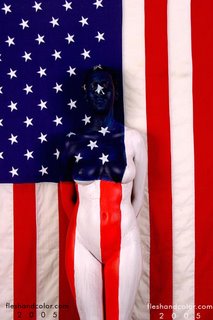      You know, the title of this post just won't seem cute in Australia, where "body shops" are called "panel beaters". |
Wednesday, August 09, 2006
God bless the Kiwis
| New Zealand OKs Topless Porn Star Parade (Courtesy my BIL Rob, who fantasizes about this happening in Petaluma, California. If it ever does, I encourage him to take his sons.) .. |
The geek that loves Dahlia and Anthony
| Then there was the time I came thiiiiiis close to becoming a constitutional lawyer. As an undergrad, inspired by celebrated constitutional historian Bill Leuchtenberg, I first caught the bug. In grad school, I wrote my graduate thesis on the distinctions between perceptual definitions of erotica and pornography, and the idiocy that ensues when we assume we all mean the same thing when we say the same words. Never had I felt more deeply the need to protect free expression. LSATs passed, law school admissions done. Then, I went to Australia to sail. I never looked back, but there’s still a US constitutional law geek in me that I let out occasionally to run around the block.  It’s that geek that adores this piece by Dahlia Lithwick on Anthony Kennedy’s recent speech to the annual conference of the American Bar Association. It’s that geek that adores this piece by Dahlia Lithwick on Anthony Kennedy’s recent speech to the annual conference of the American Bar Association. Go on. You know you’re desperate to click on that link. .. |
Tuesday, August 08, 2006
Afraid enough to be immoral
Lawrence Wilkinson brought something to my attention, yesterday, that absolutely floored me with its obviousness. That I hadn’t thought of it embarrassed me. It came up because of a dubious anniversary. It was yesterday “in 1964 that Congress passed the Gulf of Tonkin Resolution. A forbearer of the more recent Congressional actions on Iraq, The Tonkin Resolution was a reaction to U.S. Navy reports, via the White House, of a dastardly attack on a US destroyer by a North Vietnamese torpedo boat in the Gulf of Tonkin; the Resolution empowered President Johnson to ‘oppose Communism in Southeast Asia’ in essentially any damn way he pleased. It paved the way for the heavy bombing of North Vietnam in early 1965 and for the introduction of U.S. combat troops in March of that same year. And so began a nearly eight-year war in which over 58,000 U.S. troops died. Only, it turns out, that there virtually certainly was no attack: commanders of the U.S. destroyer and its accompanying ships -- which were assisting South Vietnamese commandos that night in their attacks on North Vietnamese military installations -- could not confirm that their ships had actually been attacked. We might well paraphrase Santayana: ‘We who cannot remember the past are condemned to repeat it.’” It came up because of a dubious anniversary. It was yesterday “in 1964 that Congress passed the Gulf of Tonkin Resolution. A forbearer of the more recent Congressional actions on Iraq, The Tonkin Resolution was a reaction to U.S. Navy reports, via the White House, of a dastardly attack on a US destroyer by a North Vietnamese torpedo boat in the Gulf of Tonkin; the Resolution empowered President Johnson to ‘oppose Communism in Southeast Asia’ in essentially any damn way he pleased. It paved the way for the heavy bombing of North Vietnam in early 1965 and for the introduction of U.S. combat troops in March of that same year. And so began a nearly eight-year war in which over 58,000 U.S. troops died. Only, it turns out, that there virtually certainly was no attack: commanders of the U.S. destroyer and its accompanying ships -- which were assisting South Vietnamese commandos that night in their attacks on North Vietnamese military installations -- could not confirm that their ships had actually been attacked. We might well paraphrase Santayana: ‘We who cannot remember the past are condemned to repeat it.’”(Photo shows the destroyer at the heart of the Tonkin incident, the USS Maddox.) Congress was either duped into, or was complicit in, going to war in Viet Nam on false pretenses. There was no immediate threat to the United States. The war was militarily unwinnable (the US won every major ground engagement, but lost the war). There was no international coalition of support. It undermined America’s standing in the world for twenty years. What justified initial public support of the action? A pervading fear. It was a fear stirred as much by partisan domestic politics as it was by events in any fact-based reality. It was the fear of the spread of Communism. That fear was not dissimilar to the culture of fear so pervasive in the United States since 9/11: the fear of terrorism, and the fear of the spread of militant Islam. As widely documented, the Bush administration has at times undeniably fostered that fear. Remember duct tape and plastic sheeting? Pervasive fear provides motivation for swing voters to back all manner of government action their ethics otherwise would not tolerate. Fear makes us justifiably more conservative. We want to preserve the status quo, and we will take great risks – including sacrificing our own freedom – to protect what we hold most dear. While I know that people do nutty things when they’re afraid – and the US population has been pretty afraid since 9/11 and it’s backed some pretty nutty things – I’ve been consistently disappointed that the moral tide of the US has never turned and swept aside the follies of war abroad and eroding rights at home. I have long seen both as moral issues as much as they are political, diplomatic or military. The lack of a wide-spread, morality-based response to Iraq has led many to draw a contrast with Viet Nam. The populace grew weary of Viet Nam in part because it came to be seen as an immoral war being pursued immorally. The majority decreasingly perceived protestors as aberrant. Instead, beginning to see the war as an immoral cancer on the body politic, the protestors became the war’s moral anti-bodies. So why has a similar backlash not taken shape against our actions in Iraq? Where are the demonstrations? Certainly the conflict in Iraq cannot be claimed morally superior to the folly of Viet Nam, neither in its cause nor its prosecution. There are few morally acceptable justifications for killing, in the first place. The very phrase “the killing of innocents” backhandedly defines our moral judgment concerning those who can justifiably be killed: They must not be innocent; they must be guilty. The facts, however, have revealed the pretense of Iraqi guilt to be a sham: no imminent threat from weapons of mass destruction; no link with Al Qaeda and, therefore, no indirect threat from non-existent aid to terrorists. Further, despite what I’m sure is impeccable professional and humanitarian deportment on the part of the American military, generally, the image of the United States in this war is, whether we like it or not, engraved largely by photographs from Abu Ghraib and news reports from Haditha. Further, it is my personal belief that no amount of civilian “collateral damage” can be morally justified in a conflict that has, in the first place, no just raison d’etre. These are, of course, cause for outrage. In much of the world, there is outrage. But not in the United States. I recently read an excellent analysis of why: why there is not outrage at home, and the reason for the stark contrast between this non-reaction and the American people’s response to Viet Nam. Unfortunately, I’ve misplaced the original article – mea culpa – but it pointed out one obvious difference and another less obvious one. Both have to do with a lack of sacrifice. First, during Viet Nam, there was a national draft. That spread the direct suffering of troop sacrifice more evenly across the population. Today, without a draft, it is largely the lower classes – and then, overwhelmingly, black and Hispanic folks – that are fighting the war. Most white, middle-class Americans don’t have close friends or relatives being injured or killed. So, the impact of the war is not intimate. “It ain’t people like me getting killed.” Secondly, the administration has successfully disconnected the pursuit of the war from even indirect sacrifice. In all other wars, the nation has been asked to sacrifice for the cause. Not for Iraq. In fact, the Bush administration has been pulling off an ingenious trick: retain at least tacit support for the war by inuring the population from having to sacrifice economically. No war bonds. No high taxes. Just a promise of a healthy economy and even tax cuts to go along with vigorous prosecution of the war. The financial price of the war – the mounting federal debt funding it – is simply too big and complex for most voters to engage on. (So far, events have provided only one threat to this strategy: high gas/petrol prices. Remember, we were all assured at the beginning of the war that invading Iraq would actually stabilize pump prices. Note how politically active Congress has gotten with each new price spike.) So, the analysis goes, with the two biggest reasons to care about the war – death and taxes – removed, most Americans are successfully not caring about the war. That’s glib, of course. Most Americans do care a lot about the war. Just not enough to take to the streets and make a moral stand. Because even if the morality of the war is questionable, it’s remote. All this was on my mind when I read this Boston Globe article on recent research into the relationship between reason, morality and the emotions. While it was long thought that moral judgments are based on subtle reasoning – and, therefore, generally consistent through time – it appears that morality is, in fact, much more subject to our emotional states than previously believed. In other words, we are more or less moral depending on whether we’re in a good mood or a bad one. It’s a fascinating article. It’s also got nothing to do with the war. What made me think of it was the idea that our moral judgment, if compromised by bad moods, is almost certainly also compromised by fear. So, if I’m afraid, I’m not only more conservative, I may also be less moral. It was then that it occurred to me what a devastating balance the current administration has struck. Making the nation afraid means people are willing to allow government action they might otherwise find immoral. But shielding the population from personal sacrifice means people are not forced to confront the consequence of the immoral action. We’re just afraid enough to compromise our morals, and just complacent enough not to do anything about the violation. .. |
Sunday, August 06, 2006
Oliver and Chuckles
| The way some people pine for the day they will have babies, Flame-Haired Angel and I pine for the day we will have puppies. Yes, Paris is a city for dogs, but neither of us think apartment living is fair on any but the most rat-sized of canines: dogs that might as well be stealth cats. So, for real dogs, dog-dogs, we await a time of greater geographic stability and larger gardens. In the meantime, is it any wonder that two of our favorite blogs are the Daily Oliver, the adventures of Oliver and Hugo on their vineyard in France, and Dooce, the adventures of Chuckles Armstrong and family?   |
Thursday, August 03, 2006
Morford Tesla-gasm
| Today, I was tipped off that one of my all-time favorite ranters caught wind of the story about the Tesla Roadster, about which I also blogged the other day. And then he does what he does best, under the title "Lick My Silent Sports Car". Want one yet?  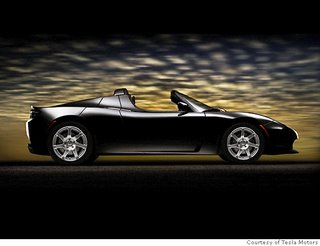 (Hat tip to my BIL, Rob) .. |
Arrogant Frog
Tuesday, August 01, 2006
Making sure judges make only popular decisions
A couple of years ago, I told a visiting American friend that, despite all else that was wrong with American politics, the thing that worried me most pressingly was the moves I saw to vilify the judiciary. What with the Schiavo case and all the fire-breating foomph about "activist judges". He felt strongly that I was being alarmist. That both the Constitutional separation of powers and the reasonableness of the American people -- admittedly demonstrated in the Schiavo case -- would make the issue a non-starter. He felt strongly that I was being alarmist. That both the Constitutional separation of powers and the reasonableness of the American people -- admittedly demonstrated in the Schiavo case -- would make the issue a non-starter. I wish he'd been right, and I could eat my humble pie in peace, but there's a din in my ears. It's the sound of those trying to oust judges and make them subservient to the same populist mechanics as politicians. See this Slate op-ed piece for a view on the threats to an independent judiciary: Bench-Clearing Brawl. Popular decisions are super. Justice, however unpopular, is better. (Illustration: The Spanish movie poster for "On the Waterfront". Read the article to see why.) .. |








